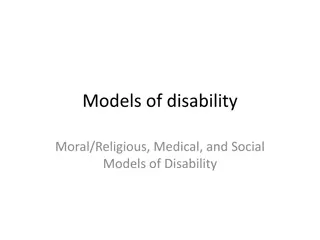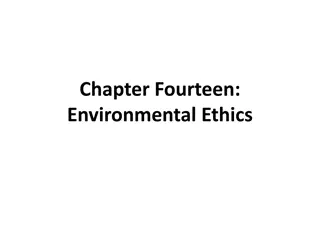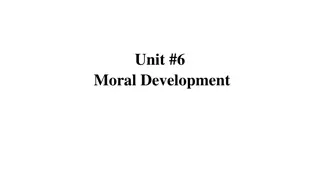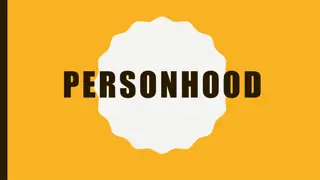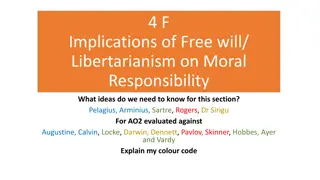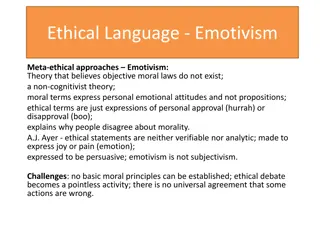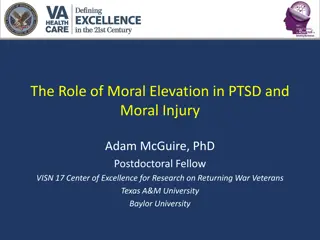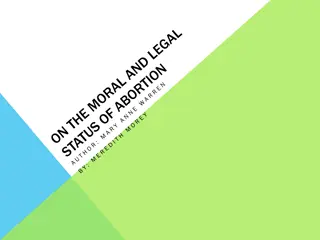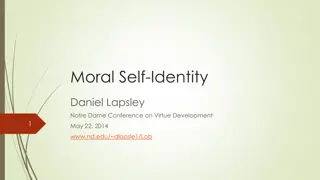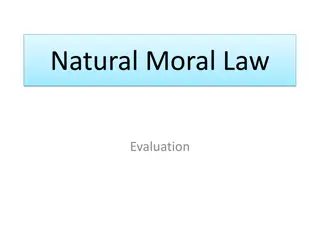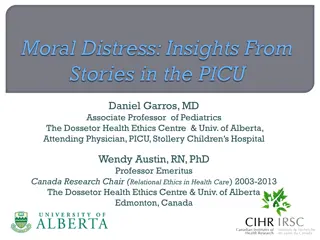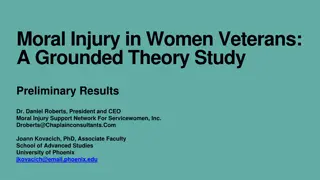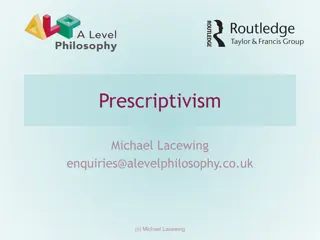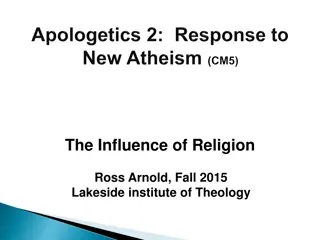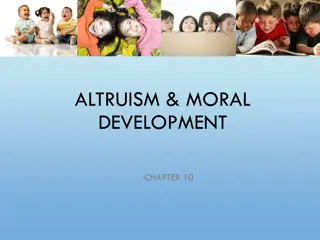Understanding Moral Development: Insights and Perspectives
Morality is the belief in right behavior accepted by society. It involves moral behavior, feelings, and judgments. Moral development evolves from childhood to adulthood, influenced by experiences and challenges. Freud's id, ego, and superego theory and Skinner's behaviorism contribute to our understanding of moral growth.
Download Presentation

Please find below an Image/Link to download the presentation.
The content on the website is provided AS IS for your information and personal use only. It may not be sold, licensed, or shared on other websites without obtaining consent from the author. Download presentation by click this link. If you encounter any issues during the download, it is possible that the publisher has removed the file from their server.
E N D
Presentation Transcript
DEVELOPMENT OF MORALITY Dr. Shankuntala Dulhani Assistant Professor Department Of Psychology Durga Mahavidyalaya Raipur
B.A. B.A. PART PART 3 3 UNIT UNIT - - 4 4 Development Of MORALITY
What is Morality Morality? Morality is the belief that some behavior is right and acceptable to a society or group of people. Morality may also be specifically synonymous with goodness or rightness .
Aspects of Morality: Aspects of Morality:- - Basically there are three aspects of morality (1) Moral behavior:- Moral behavior are what one believes to be the right things to do. It involves caring , helping, sharing and volunteering . It can also be called asPROSOCIAL BEHAVIOR. (2) Moral feeling:- Moral feeling would be only feeling that develops within a person to give one an idea of what is morally right and ethical. (3)Moral judgement :- Moral judgements are evaluations or opinions formed as to whether some action or inaction intention, motive , character trait or a person as a whole is good or bad as measured against some standard of good.
Moral development focuses on the emergence , change and understanding of morality from infancy through adulthood. Morality develops across lifetime and is influenced by an individuals experience and their behavior when faced with normal issues through different periods physical and cognitive development.
(1) Freuds concept of moral development in children From Freud's theory of the id, the ego and the superego. Freud proposed the presence of tension between the society s needs and the individuals. (i) The id which is self preserving part of the mind only focuses on what feels good regardless of the consequences. (ii) The superego on the other hand appears to be the moral centre which carefully considers actions before executing them based on what the environment dictates. According to freud, once the child is able to repress his id and superego to function , the moral development ensues.
(2) Skinners concept of moral development Based on the theory of behaviorism skinner also looks at how the child functions and how society or the environment affects it. He believes that socializing with other is a primary proponent of moral development Skinner steers away from the idea of the tension between the internal and external environment but rather states that the outside world is what shapes the individuals internal sense of morality
(3) Piagets view on moral development of children In Piaget s theory of cognitive development, he looks at how intelligence emerges from childhood adulthood. His study also includes a look at how morality manifests in a child s thoughts and behavior and the other factors that influence the development of concepts such as justice, welfare and rights.
(4) Kohlbergs stages of moral development Kohlberg s theory of moral development states that we progress through three levels of moral thinking that build on our cognitive development . He used the idea of moral dilemma stories that present conflicting ideas about two moral values to teach 10 to 16 year old about morality and values. After presenting people with various moral dilemmas, Kohlberg reviewed people s responses and placed them in different stages of moral reasoning. Kohlberg identified three levels of moral reasoning under which there are 6 stages. Each level is associated with increasingly complex stages of moral development.
(i) Family (ii)School (iii)Neighbourhood (iv) Religious Institutions (v) Club and camp experience (vi)Playmates and Friends (vii) Culture (viii) Community
THANK YOU!


